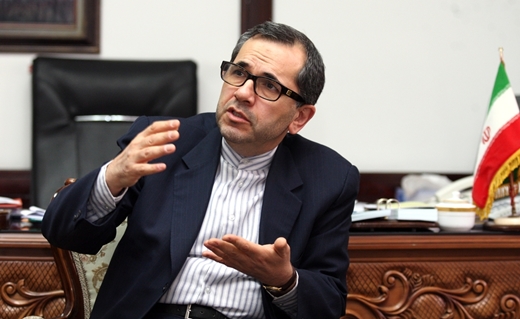Deputy Foreign Minister for European and American Affairs Majid Takht- Ravanchi added that CBI’s assets were in Europe when international sanctions were still in place and because of those sanctions Iran had no access to them, IRNA reported.
“This is not a new development and the asset freeze took place before negotiations for the nuclear accord began,” Takht- Ravanchi told reporters on the sidelines of a conference on the potential implications of US actions against Iran.
Ardeshir Fereydouni, the head of CBI’s Legal Department, reacted to the news announced by the New York Times on Monday and said US efforts to freeze $1.6 billion of Iranian assets in Luxemburg contravened international laws and treaties.
In comments published on CBI’s website, Fereydouni said the bank’s attorneys, in synch with the Presidential Office for International Law, have presented their defense arguments to recover those assets.
As reported by the Times, a judge in Luxembourg has quietly put a freeze on assets worth $1.6 billion belonging to Iran’s central bank, quoting people familiar with the case.
The paper reports that this is one of increasing instances in which domestic civil lawsuits against foreign entities have raised numerous complications.
Diplomatic and security specialists told the paper that the litigation also has broader significance. The essence of the 2015 deal was that Iran agreed to curb its nuclear program in exchange for the lifting of sanctions so it could reintegrate into the world economy. This goal would be undermined if any Iranian-linked assets in places like Europe were to face the threats of seizure to pay off default judgments handed down by American courts.
Payam Mohseni, the Iran Project director at Harvard Kennedy School’s Belfer Center for Science and International Affairs, was quoted as saying that if the victims succeed in seizing the funds, it could be a step toward a new confrontation, strengthening the hands of those who oppose the deal.
“Already, some of the envisioned investments in Iran with western financing have materialized,” he said.
“A ruling like this would make Iranian assets vulnerable in Europe which, for Iranians, would violate the spirit of the agreement if not its letter.”
The maneuvers in Luxembourg have attracted scant attention because the litigation is largely confidential. But according to the Times, a letter detailing the case is now circulating in Washington.
Lawyers for the palintifs sent the letter on Thursday to the prime minister of Luxembourg, seeking his government’s assistance in opposing Iran’s effort to unfreeze its assets and sent copies of the letter to senior foreign policy officials in the White House.
Last year, the US Supreme Court said the Central Bank of Iran must turn over $2.1 billion in frozen assets held by Citibank to victims of the 1983 Marine Corps barracks bombing in Lebanon. The Obama administration backed the victims in that case, which Iran is now challenging in the International Court of Justice.
